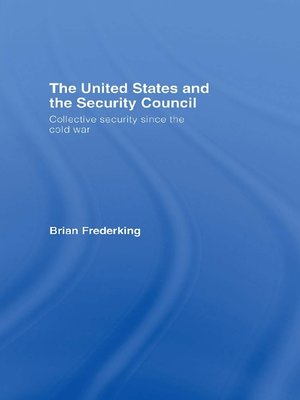The United States and the Security Council
ebook ∣ Collective Security since the Cold War
By Brian Frederking

Sign up to save your library
With an OverDrive account, you can save your favorite libraries for at-a-glance information about availability. Find out more about OverDrive accounts.
Find this title in Libby, the library reading app by OverDrive.



Search for a digital library with this title
Title found at these libraries:
| Library Name | Distance |
|---|---|
| Loading... |
This book describes the rules governing international security decision-making and examines the different understandings of collective security in the post-Cold War world.
The post-Cold War world has largely been a struggle over which rules govern global security. Discussions and decisions following the events of 9/11 have highlighted differences and disputes in the United Nations Security Council. Where Russia, China, and France prefer 'procedural' collective security, in which all enforcement attempts must be explicitly authorized by the Security Council, the US and Britain prefer 'substantive' collective security, in which particular countries can sometimes take it upon themselves to enforce the rules of the global community.
Using a constructivist theory of global security to analyze a series of case studies on Iraq (1990-91); Somalia, Rwanda, and Haiti; Bosnia and Kosovo; Afghanistan and Iraq (2003), the author demonstrates how competing interpretations of collective security recur. Challenging the claim that 9/11 fundamentally changed world politics, Brian Frederking argues that the events exacerbated already existing tensions between the veto powers of the UN Security Council.
The United States and the Security Council will be of interest to students and researchers of American foreign policy, security studies and international organizations.







